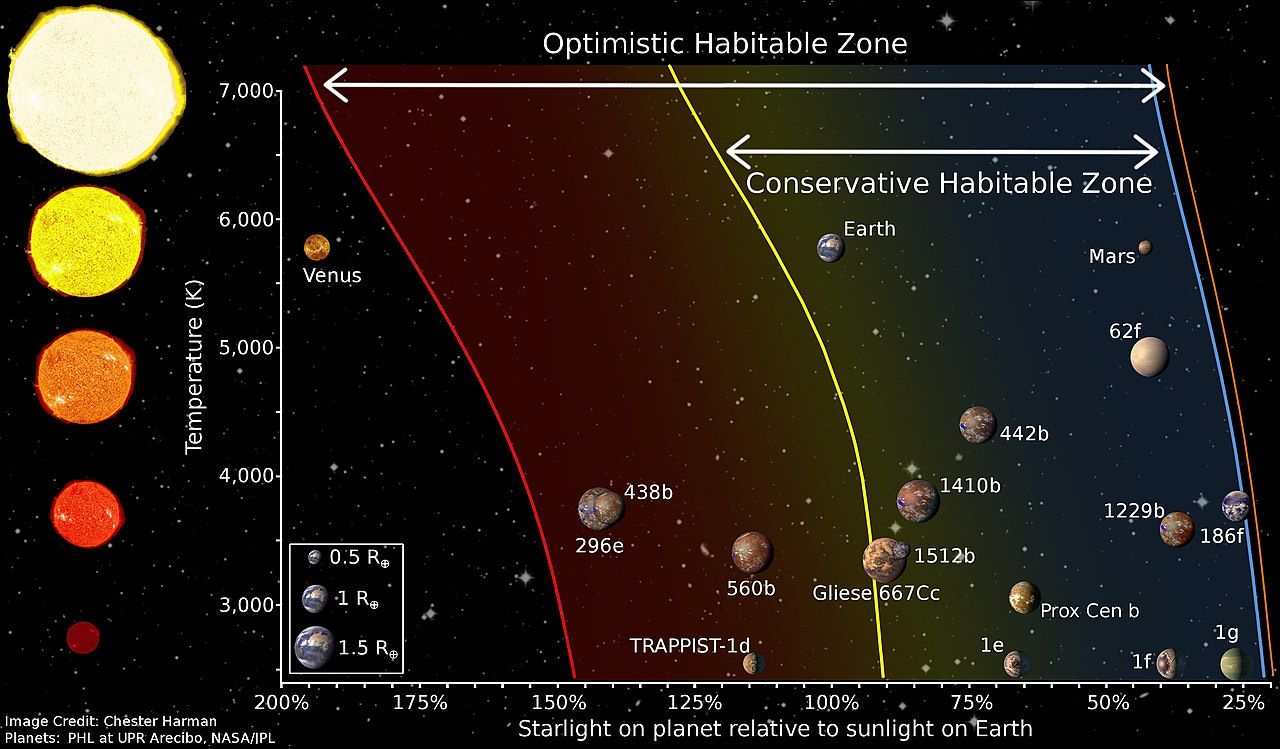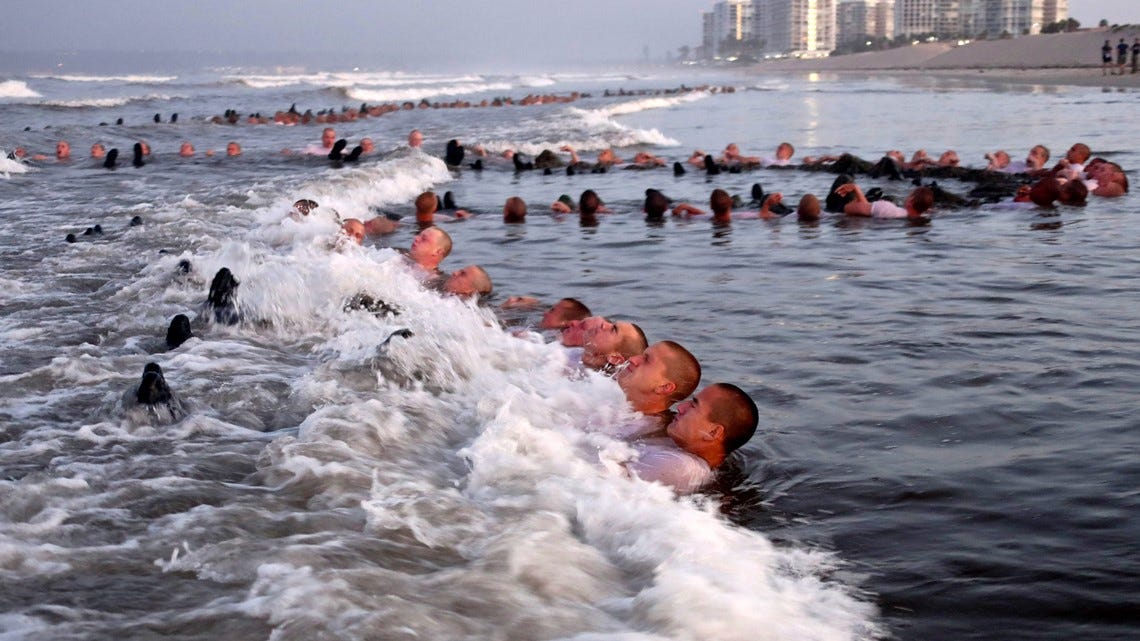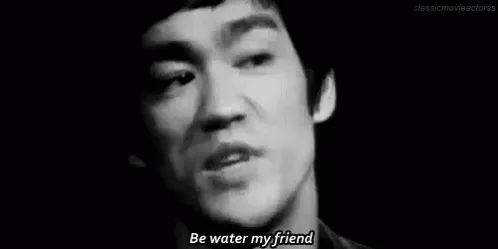“A human being should be able to change a diaper, plan an invasion, butcher a hog, conn a ship, design a building, write a sonnet, balance accounts, build a wall, set a bone, comfort the dying, take orders, give orders, cooperate, act alone, solve equations, analyze a new problem, pitch manure, program a computer, cook a tasty meal, fight efficiently, die gallantly. Specialization is for insects.” —Robert A. Heinlein, Time Enough For Love
Welcome to the Renaissance Humans Newsletter, where I focus on sense-making and story-telling in the turbulent twenties. The Renaissance (“rebirth,” in French) spanned from the 14th to the 17th century and marked a period of cultural, artistic, and intellectual renewal in Europe. A Renaissance Human fosters curiosity, creativity, critical thinking, and character in a journey of never-ending learning. They cultivate Mind, Body, and Spirit, in service of Community, and oriented to the Transcendentals.
Too Long; Didn’t Read/Bottom Line Up Front (TL;DR/BLUF):
The surf zone is a microcosm of life itself. Beautiful and terrifying, requiring courage and discernment to properly navigate.
If you love the ocean, learn to accept the sand and salt. Be comfortable being uncomfortable, or as I titled my Master’s Thesis, “Preparing to be Unprepared.”
All is Flow and Flux. This sounds super Woo-ish, but the science is there to support it. This recognition can help approach things as complex (interwoven) rather than complicated (folded). Seeking activities that induce a psychological state of flow is a path to human flourishing.
Be like water. Easy to say and hard to embody. Even when you fall short, keep trying for the golden mean between tyrannic ice and anarchic steam.
Benthesicyme and Cymopoleia are both lesser-known sea goddesses in Greek mythology— daughters of Poseidon. Benthesicyme, or "Lady of the Deep Waves," is associated with the depths of the sea, noted for her beauty and connection to the ocean's mysteries. Cymopoleia, or “Wave-Walker,” represents the more chaotic and tempestuous nature of the water— waves and storms.
These figures harken back to a time humans had a more enchanted vision of the world. Before Modernism came and gave us all these curses, like indoor plumbing, anesthesia, and a rapacious and extractive Great White Shark-style “keep moving growing or die” market imperative.
I spent a lot of time in the ocean over the last week, playing with my family and drifting in the ceaseless flux. I love to see the ocean through the eyes of my kids— the mixture of curiosity, joy, flickers of fear, and the power revealed by the waves. It all combines into awe at the majesty of nature. All this laying in the surf encourages thoughts to roam.
Frogmen, or Navy SEALs, use water to our advantage, swimming ashore in places people don’t expect. One of my old Commodores used to say we excel in ambiguous environments. Salt water and sand are hard on technology and weapons. The surf, tides, currents, air temperature, and weather all conspire to challenge any well-laid plan. The environment gets a vote, as the saying goes.
The surf zone is the ultimate liminal space, where the ocean transitions to land. I’m personally in a liminal space, coming to the end of twenty seven years in the Navy. Waiting to begin working a new job, publish a novel, and start a PhD program. I’m figuratively and literally in transition— although as Ed Brenegar asserts, we are always in transition.
The following are some reflections on water and complexity— weaving together a nonlinear braid out of seaweed, beachgrass, and some random pieces of kite string found out on the sand. It will meander, pushed to and fro by the water like a lost child’s toy.
When I stand at the edge of the surf and feel the tidal pull, the waves sucking at the sand beneath my feet, I wonder, should I resist? Should I go where the environment beckons, in an endless reconfiguration of possibilities? How much Wu Wei and how much conscious, willful agency?
A SEAL trainee spends a good deal of time in the surf zone, and “Hit the surf” is a near constant order from instructor cadre. Complying with this command involves sprinting as fast as you can (or as slow as you can get away with) towards the nearest body of water and flinging yourself into it.1 During training, candidates spend hours watching the rhythms of the Pacific, learning to judge the conditions and the breaks in wave sets. This attunement to the environmental nuances goes back to our origins as Underwater Demolition Teams (UDTs), and the requirement to destroy heavily defended beach obstacles in preparation for Army and Marine Corps units to come ashore.
You do endless sessions of surf passage— in boat crews of five or six, you practice getting through the surf armed only with paddles, timing, and teamwork. Sometimes, after your boat flips again and again and again, it seems hopeless. But then….. then, you judge the waves just right, and make it through the sets. And you did it as a team.
We do rock portage in front of the historic Hotel Del Coronado, which teaches trainees how to navigate a dangerous environment through team cohesion and quick thinking. Participatory Knowing, indeed.2
With your classmates, you also lay in the surf for extended periods of time, at the perfect position to have frigid, salty spray and sand pummeled into your face at high velocity. Someone should patent this process as an exfoliation technique—it really does wonders for your pores.
During hell week, trainees endure rounds of “surf conditioning” morning, noon, and night. At sunset, the cadre force you to bid farewell to the sun, the celestial body which keeps the vast cold of interstellar space at bay. Earth’s proximity to the sun is what allows water to exist in liquid form, by virtue of our orbit within the goldilocks zone.
Too close to the sun, and the water would boil off the planet, leaving a rocky wasteland.
Too far, and earth would be a frigid ice ball, hurtling through space.

The Tao Te Ching emphasizes the importance of water in several chapters:
The supreme good is like water, which nourishes all things without trying to. It is content with the low places that people disdain. Thus it is like the Tao. (ch 8)
“Nothing in the world is softer and weaker than water. Yet, to attack the hard and strong, nothing surpasses it. Nothing can take its place. (ch 78)
All is flow— Panta Rhei, as the Greek philosopher Heraclitus is reputed to have said. You can’t step in the same water twice, as both you and the water have changed.
Flow theory, developed by Mihaly Csikszentmihalyi (pronounced me-HIGH chick-sent-me-HIGH-ee), describes a mental state of complete immersion and engagement in an activity. In this state, individuals experience deep focus, a sense of control, and intrinsic motivation, often losing track of time. Csikszentmihalyi identifies several key components that contribute to the flow experience, to include a good challenge-to-skill balance, clear goals and performance feedback, and a loss of self-consciousness— literally merging with task and environment. Flow can occur in various activities, such as work, sports, creative endeavors, or hobbies.
Physics professor Dr. Adrian Bejan and discoverer of the Constructal law, agrees. The constructal law is an organizing principle by which natural phenomena as well as human designed systems will evolve in a way that facilitates the flow of energy and material passing through it.
Humans encounter a reality that appears to scale from simple to chaotic. The perception of what is simple and what is chaos may differ from person to person. To the average human, a physical altercation is total chaos. But to a trained Martial Artist, such an event would not be chaotic, but complex— distance management, power generation, angles, and a composed psychological state. So the perspective of the individual Agent matters in addition to the composition of the Arena.
Water holds the key to making sense of this spectrum.
I like to think about Chaos as Steam, Order as Ice, and Complexity as Water. Dynamical Systems (Like a human society, or an ecosystem in the wild) oscillate between states of chaos, complexity, and order, depending on a host of variables. Order is signified by ice—a domain of stasis. Chaos is represented by steam—a domain of turmoil. Finally, complexity is embodied by water—the middle position between order and chaos.
It’s important to note that diversity and variety are necessary for the health of all organisms— so pockets and periods of order and chaos are good for the overall system. But complexity is where things need to live, if they want to persist in time. We have to be like water—not steam, not ice. Find the Goldilocks zone, because the alternatives are not pretty.3

Much of the trouble with the modern world is applying complicated tools to complex situations.
A surf zone is inherently Nonlinear in nature. Nonlinearity is a property of complex and chaotic systems, characterized by emergence, approximation, random behavior, and unpredictability. It is the feature of natural (real world) or other systems which cannot be decomposed into parts (additivity) and reassembled into the same thing (replicability), or do not change in proportion to a change in an input (proportionality). You can take an airplane apart and put it back together again. That is a Linear/Coherent thing. You cannot take a human being apart and put it back together again. That is a Nonlinear/Complex thing. I defined many of the terms associated with Nonlinearity in an earlier essay here.
I wish I’d learned about Nonlinearity earlier in my career. I wish I’d had the language to understand it—since my job was figuratively and literally swimming in Nonlinearity.
What does all of this give you? It seems like the sadistic infliction of pain and misery, for no good reason other than to select who among a given population has strong enough masochistic tendencies to withstand it.
Why force humans to endure the cold, wet, sandy conditions over and over again?
Part of it relates to how Taylor Swift contextualizes it, when she says, we must remember that one man is much the same as another, and that he is best who is trained in the severest school.4
This training takes an unpredictable environment (the surf zone) and a risky, dynamic process (transitioning from land to sea, or vice versa) and it makes humans comfortable navigating it.
Sometimes too comfortable, as I learned when I nearly drowned off the coast of Africa a decade ago. But that’s a story for another day.
There came a point in training when the cold and the wet and the salt and the sand didn’t bother me anymore. I remember the moment, when I understood that besides building grit and resilience, all the immersion in the surf zone vastly heightened my baseline for discomfort. The cold, wet, salt, and sand were simply attributes of my work environment, part of my job commute. With my teammates, I got into Csikszentmihalyi’s flow.
Takeaways:
The surf zone is a microcosm of life itself. Beautiful and terrifying, requiring courage and discernment to properly navigate.
If you love the ocean, learn to accept the sand and salt. Be comfortable being uncomfortable, or as I titled my Master’s Thesis, “Preparing to be Unprepared.”
All is Flow and Flux. This sounds super Woo-ish, but the science is there to support it. This recognition can help approach things as complex (interwoven) rather than complicated (folded). Seeking activities that induce a psychological state of flow is a path to human flourishing.
Be like water. Easy to say and hard to embody. Even when you fall short, keep trying for the golden mean between tyrannic ice and anarchic steam.
Navigating a surf zone creates a dynamic interrelationship with your environment— a fusing with it, even.
Or maybe it just reminds you that you were never separated to begin with.
Currere Certamen Tuum
And getting wet on its own is preferable to the next echelon of instructor guidance, which is to “get wet and sandy.” I’ve never liked the term sugar cookie, but that is a fair description of how you look when you’re done getting wet and sandy.
Per Henriqques, “Participatory knowing refers to knowing how to act in the “agent-arena” environment. It is simultaneously one of the most basic and most profound kinds of knowing. One way to think about participatory knowledge is to consider the difference between being in a state of confusion versus a state of flow. Flow is when you are in a groove and feel a natural “dance” between your actions and the environment, and an example of participatory knowledge.”
As Daniel Schmactenberger notes in his video series, “In Search of the Third Attractor,” he describes the power of ever increasing technological capacity (exponential tech), driving increased destructive and creative capacities. Two of the most likely outcomes (attractors) are either some kind of chaotic breakdown (Chaotic Steam), or the development of powerful control systems in response, oppressive authoritarian control (Tyrannic Ice). Our task as humans is to find the complex middle ground solution between Anarchy and Tyranny.
Thucydides, “History of the Peloponnesian War” (431-404 B.C.)












wow or woo-woo, another tour de force of pithy prose. Really appreciate that you provide links to all the background words and sources. That cannot be easy. Also loved the graphic with ice, water, and steam, and their relative characteristics. This particular essay seems to be a bit related to phenomenology, but you are mapping new ground. Flow is a fascinating topic. thx for including me as a subscriber.
I love it. One more thing I thought about reading the article was how the surf zone defies our efforts to plan against it.
I go to the beach three days a week to swim. I used to check the surf and weather report and cancel the trip if it looked unfavorable, but I stopped because the reports are wrong as often as they're right. Now, whether it's raining at the house or the weather channel says it's going to be rotten, I show up. As often as not, there's a pocket of beautiful weather. Of course, the opposite is true too, but living with less than ideal conditions is another issue entirely!
The complexity of the surf defies our efforts to predict its behaviors. You have to take it as you find it. What a great analogy, thanks for presenting it.